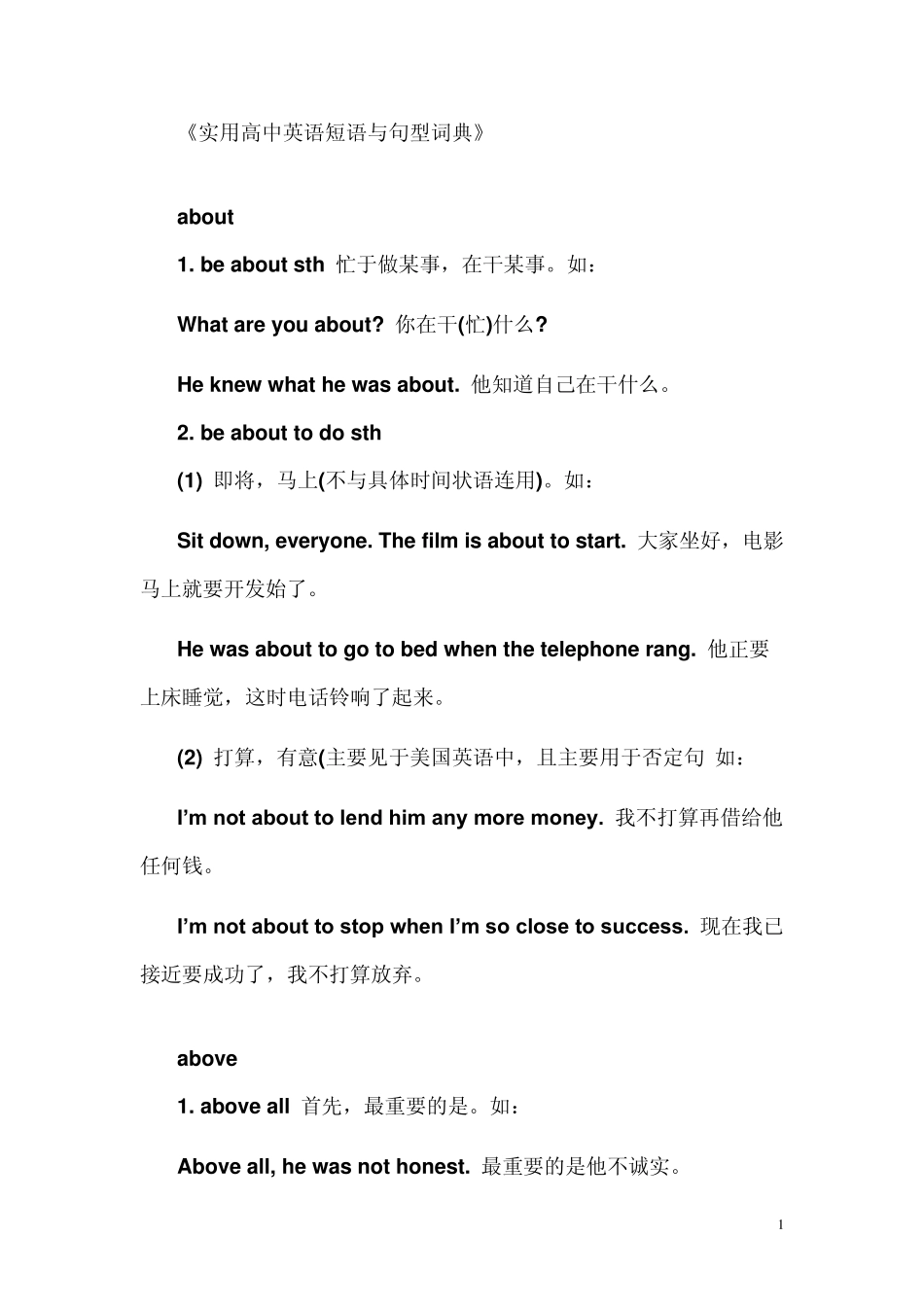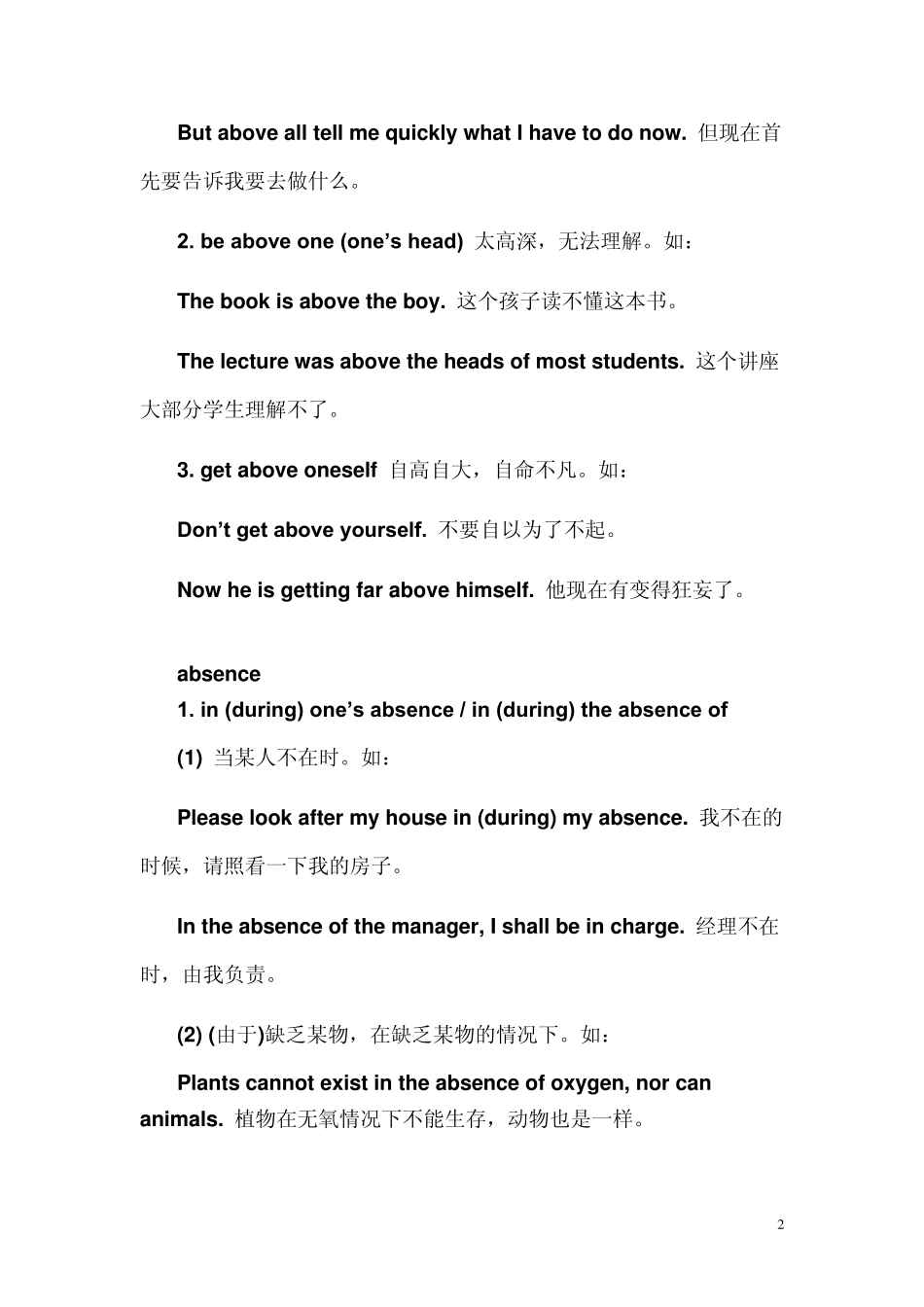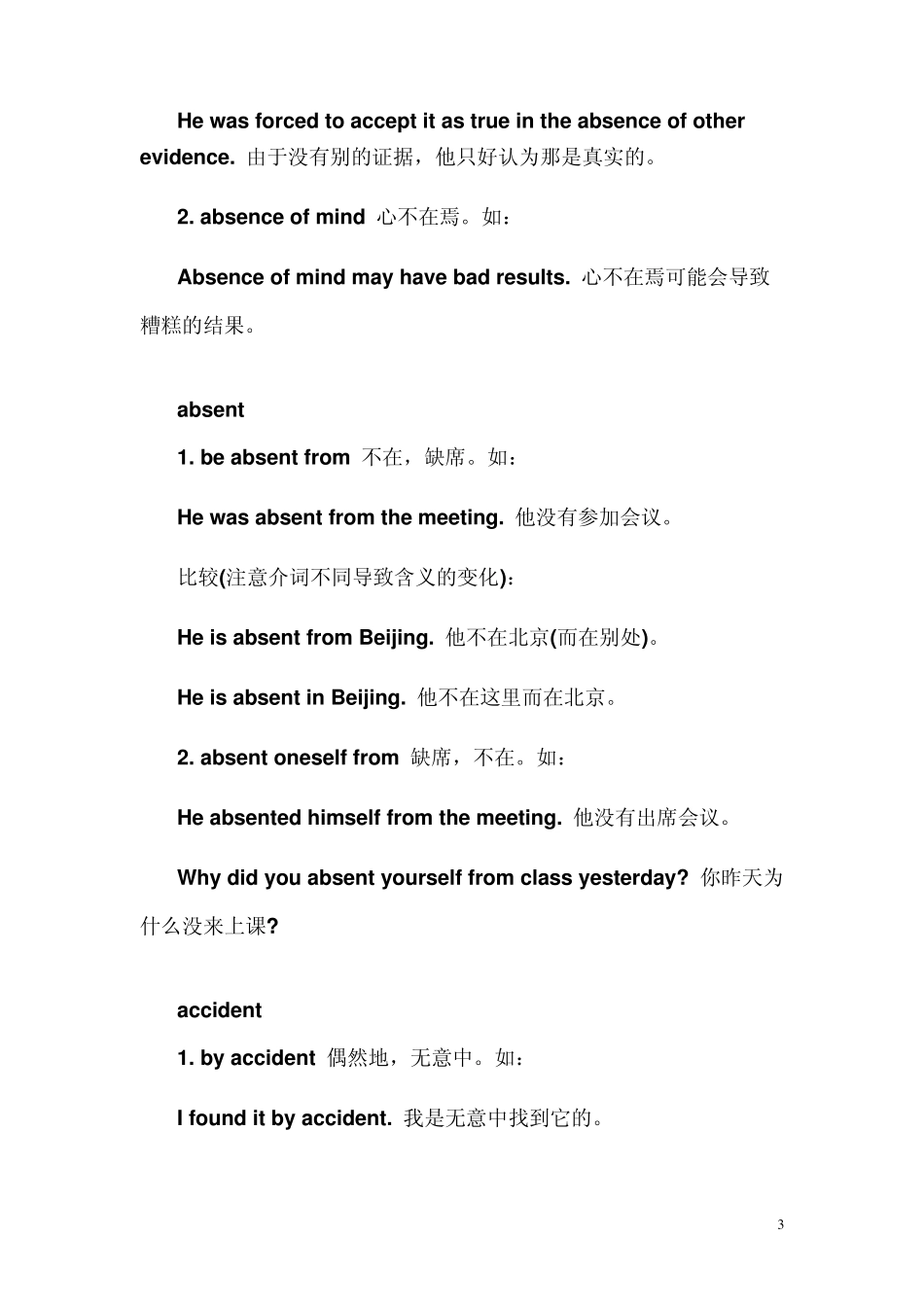1 《实用高中英语短语与句型词典》 about 1. be about sth 忙于做某事,在干某事。如: What are you about? 你在干(忙)什么? He knew what he was about. 他知道自己在干什么。 2. be about to do sth (1) 即将,马上(不与具体时间状语连用)。如: Sit down, everyone. The film is about to start. 大家坐好,电影马上就要开发始了。 He was about to go to bed when the telephone rang. 他正要上床睡觉,这时电话铃响了起来。 (2) 打算,有意(主要见于美国英语中,且主要用于否定句 如: I’m not about to lend him any more money. 我不打算再借给他任何钱。 I’m not about to stop when I’m so close to success. 现在我已接近要成功了,我不打算放弃。 above 1. above all 首先,最重要的是。如: Above all, he was not honest. 最重要的是他不诚实。 2 But above all tell me quickly what I have to do now. 但现在首先要告诉我要去做什么。 2. be above one (one’s head) 太高深,无法理解。如: The book is above the boy. 这个孩子读不懂这本书。 The lecture was above the heads of most students. 这个讲座大部分学生理解不了。 3. get above oneself 自高自大,自命不凡。如: Don’t get above yourself. 不要自以为了不起。 Now he is getting far above himself. 他现在有变得狂妄了。 absence 1. in (during) one’s absence / in (during) the absence of (1) 当某人不在时。如: Please look after my house in (during) my absence. 我不在的时候,请照看一下我的房子。 In the absence of the manager, I shall be in charge. 经理不在时,由我负责。 (2) (由于)缺乏某物,在缺乏某物的情况下。如: Plants cannot exist in the absence of oxygen, nor can animals. 植物在无氧情况下不能生存,动物也是一样。 3 He was forced to accept it as true in the absence of other evidence. 由于没有别的证据,他只好认为那是真实的。 2. absence of mind 心不在焉。如: Absence of mind may have bad results. 心不在焉可能会导致糟糕的结果。 absent 1. be absent from 不...


